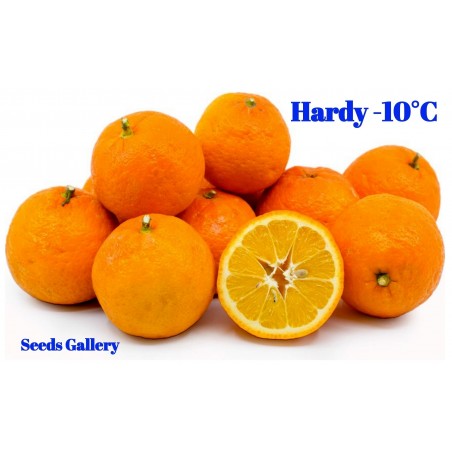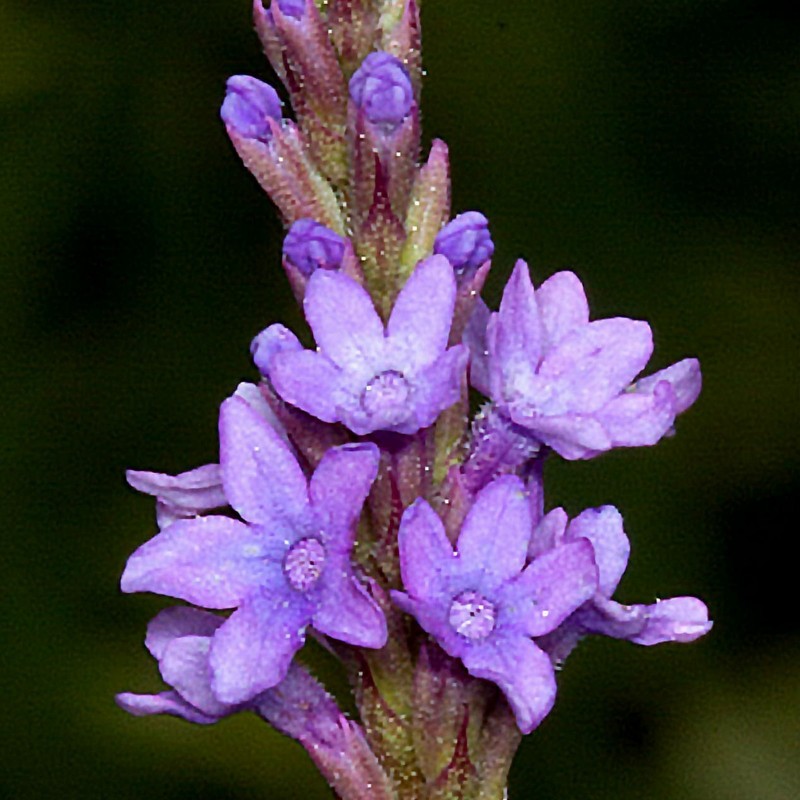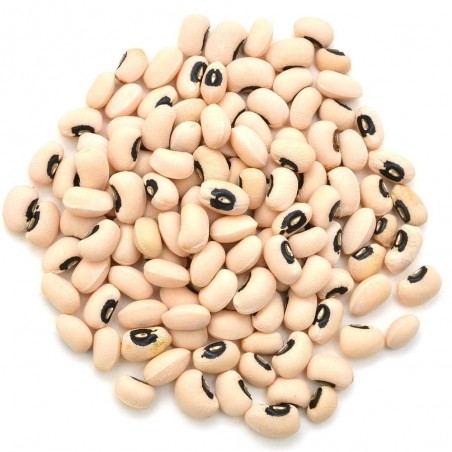
Holy Herb - Common Vervain Seeds (Verbena officinalis)
Holy Herb - Common Vervain Seeds (Verbena officinalis)
Price for Package of 25 Seeds.
Verbena officinalis, the common vervain or common verbena, is a perennial herb native to Europe and is naturalized in Australia, North America, and many other places in the world. Vervain is best gathered in
Holy Herb - Common Vervain Seeds (Verbena officinalis)
Price for Package of 25 Seeds.
Verbena officinalis, the common vervain or common verbena, is a perennial herb native to Europe and is naturalized in Australia, North America, and many other places in the world. Vervain is best gathered in summer. It grows up to a metre (yard) high, with an upright habitus. The lobed leaves are toothed, the delicate spikes hold mauve flowers. This plant prefers limey soils; occasionally it is grown as an ornamental plant but more often for the powerful properties some herbalists ascribe to it.
FAMILY: Verbenaceae
GENUS: Verbena
SPECIES: Officinalis
OTHER NAMES: Verbena, Verbenaca, Veneris Herba, Herba Sacra, Holy Wort, Druid’s Weed, Brittanica, Pigeon’s Grass, Blue Vervain, Eisenkraut, Enchanter’s Plant, European Vervain, Herb of Grace, Herb of the Cross, Herba Verbenae, Herbe aux Enchantements, Herbe du Foie, Herbe Sacrée, Herbe aux Sorciers, Herbe à Tous les Maux, Herbe du Sang, Herbe de Vénus, Holywort, Juno’s Tears, Ma Bian Cao, Pigeon’s Grass, Pigeonweed, Simpler’s Joy, Turkey Grass, Veine de Vénus, Verbenae Herba, Vervain, Verveine, Verveine Commune, Verveine des Champs, Verveine Officinale, Yerba de Santa Ana. It is also known as a Holy Herb, or more ambiguously as “Mosquito Plant” or “Wild Hyssop”. The common name “blue vervain” is also sometimes used, but also refers to V. hastata. And of course, being the only member of its genus in much of its range, it is also simply known as “the vervain” locally.
Verbena has long been associated with divine and other supernatural forces. It was called “tears of Isis” in ancient Egypt, and later on “Juno’s tears”. In ancient Greece it was dedicated to Eos Erigineia. In the early Christian era, folk legend stated that Verbena officinalis was used to staunch Jesus’ wounds after his removal from the cross. It was consequently called “holy herb” or (e.g. in Wales) “Devil’s bane”.
The scientific name references the Ancient Roman term verbena, used for any sacrificial herb considered very powerful. Officinalis, meanwhile, is Latin for “used in medicine or herbalism. Ancient Roman priests swept and purified the altars of Jupiter with bundles of vervain. They also used it ritually to create love and peace. Ancient Germans wore vervain on their bodies as charm to create peace, bring love, and pacify evil energies.
Vervain was:
– carried for general good luck and used as a pledge of mutual good faith;
– worn as a charm around the neck for headaches and for snake and other venomous bites;
– buried in a field to make crops abundant;
– burned to attract wealth;
– hung above a bed to prevent nightmares;
– hung at homes as a protection from negative spells;
– hung above a baby’s crib for protection and to enable the child to grow up with a love of learning and a happy look;
– used as a pledge of mutual faith when given to a friend;
– used as a protection from witches;
– used widely by magicians and sorcerers;
Vervain medicinal uses:
Verbena officinalis herb has been used in the traditional Austrian medicine internally (as tea or liqueur) for treatment of infections and fever. Common Vervain is usually used as a herbal tea “Vervain”. Verbena has been listed as one of the 38 plants used to prepare Bach flower remedies, prescribed against “over-enthusiasm”. In the Modern Era, it is sometimes considered a powerful “ally” of poets and writers, as its relaxing effects can relieve writer’s block.
The essential oil of various species – mainly common vervain – is traded as Spanish verbena oil.
– Vervain is used as antibacterial, analgesic, anti-inflammatory, and blood coagulant.
– It also is thought to have anti-tumor activity.
– Vervain brings wondrous, vivid, and prophetic dreams, and also acts as an aphrodisiac and nerve tonic. (If looking to enhance dreaming, it is best to drink vervain tea or take one dose of dried extract right before going to sleep)
– The herb is considered to be an anti-depressant and has a powerful calming effect. It is useful in cases of insomnia for creating restful sleep. Vervain is also very good for calming anxieties, and has a very balancing effect on the hormone cycles of women.
– Vervain is very helpful in treating headaches and gallstones, and acts as a tonic for the liver and heart.
– The flower tops are prepared as a tea or tincture to treat insomnia and cramps.
– A wash of vervain is excellent for mouth ulcers, hair and eyes.
– A poultice of the herbage may be used to rapidly heal wounds.
Vervain herbage, either fresh or dried, can be placed in boiling water and steeped to make a tea.
A word of cauton: Vervain does cause nausea in some people, and must be avoided by pregnant and breast-feeding women.
Safety notes: This website is not medical advice, and please check with your doctor before using plants if you are pregnant, using medications or have other health conditions.
Source:
entheology.com
wikipedia.org
webmd.com
Tips: Well suited to growing in a mixed herbaceous border and beneath trees and shrubs. Plant 7cm (3in) deep in well-drained soil. Onions are drought tolerant when they are established. Decrease water when the flower appears.
WIKIPEDIA:
Verbena officinalis, the common vervain or common verbena, is a perennial herb native to Europe. It grows up to a metre/yard high, with an upright habitus. The lobed leaves are toothed, the delicate spikes hold mauve flowers.
This plant prefers limey soils, it is occasionally grown as an ornamental plant but perhaps more often for the powerful properties some herbalists ascribe to it. Propagation is by root cuttings or seed. It is widely naturalised outside its native range, for example in North America.
Use by humans
Common vervain has been held in high esteem since the Classical Antiquity; it has long been associated with divine and other supernatural forces, and it has an equally long-standing use as a medicinal plant. Herbal capsules are used as a soporific drug in much the same way as for the better known valerian.
Verbena officinalis herb has been used in the traditional Austrian medicine internally (as tea or liqueur) for treatment of infections and fever.[3] Medical use of Common Vervain is usually as a herbal tea; Nicholas Culpeper's 1652 The English Physitian discusses folk uses. "Vervain", presumably this species, is one of the original 38 Bach flower remedies, prescribed against "over-enthusiasm"[citation needed]. In the Modern Era, it is sometimes considered a powerful "ally" of poets and writers, as its relaxing effects can relieve writer's block.[citation needed] It cannot be considered safe to use during pregnancy as it might cause miscarriages.
While common vervain is not native to North America, it has been introduced there and the Pawnee have adopted it as an entheogen enhancer and in oneiromancy, and is often referred to as the North American version of Calea zacatechichi.
In western Eurasia, the term "verbena" or "vervain" usually refers to this, the most widespread and common member of the mostly American genus occurring there. It was called "tears of Isis" in Ancient Egypt, and later on "Juno's tears". In Ancient Greece, it was dedicated to Eos Erigineia. In the early Christian era, folk legend stated that Common Vervain was used to stanch Jesus' wounds after his removal from the cross; hence names like "Holy Herb" or (e.g. in Wales) "Devil's bane".
Because of the association with the Passion of Christ, it came to be used in ointments to drive out and repel "demonic" illness. Vervain flowers are engraved on cimaruta, Italian anti-stregheria charms. In the 1870 The History and Practice of Magic by "Paul Christian" (Jean Baptiste Pitois) it is employed in the preparation of a mandragora charm.
A Royal Navy Arabis class sloop of the World War I era was named HMS Verbena, and in World War II a Group 1 Flower class corvette bore the same name; a Group 2 vessel of the latter class was called HMS Vervain. The only Verbena widely found in England in a native state is common vervain, though it is just as possible that the names reference the popular ornamental verbenas, such as the garden vervain.
Chemistry
Chemical investigations of petroleum ether and chloroform extracts led to the isolation of β-sitosterol, ursolic acid, oleanolic acid, 3-epiursolic acid, 3-epioleanolic acid and minor triterpenoids of derivatives of ursolic acid and oleanolic acids. Chromatographic purification of the methanol extract yield two iridoid glucosides (verbenalin and hastatoside), a phenylpropanoid glycoside, verbascoside and β-sitosterol-D-glucoside.[6] Hastatoside and verbenalin have sleep-promoting (soporific) properties.[7] It also contains a monoterpene alcohol called verbenol.[8] In another study, four compounds were isolated and identified as apigenin, 4'-hydroxywogonin, verbenalin, and hastatoside.[9] Aucubin has also been found as one the active constituents.
Common names and taxonomy
It is also known as simpler's joy or holy herb, or more ambiguously as "mosquito plant" or "wild hyssop". The common name "blue vervain" is also sometimes used, but also refers to V. hastata. And of course, being the only member of its genus in much of its range, it is also simply known as "the vervain" locally.
The common names of V. officinalis in many Central and Eastern Europes languages often associate it with iron, for example:
Echtes Eisenkraut (German: "true ironherb")
IJzerhard (Dutch: "iron-hard")
Læge-Jernurt (Danish: "medical ironwort")
Železník lekársky (Slovak: "medical ironherb")
Rohtorautayrtti (Finnish: "medical ironherb")
Common vervain was scientifically described by Carl Linnaeus his 1753 Species Plantarum.[1] The scientific name references the Ancient Roman term verbena, used for any sacrificial herb considered very powerful (as described e.g. by Pliny the Elder). Officinalis, meanwhile, is Latin for "used in medicine or herbalism".
| HEIRLOOM ? | Yes |
|---|---|
| Organic Seeds ? | Organic Seeds |
| Perennial ? | Perennial plant : Yes |
| Válogatott magok? | Válogatott magvak |
| Resistant to cold and frost ? | Resistant to cold and frost |


Your review appreciation cannot be sent
Report comment
Report sent
Your report cannot be sent
Írd meg véleményedet
Review sent
Your review cannot be sent
🌍 Globális szállítás az EU-ból
Világszerte szállítunk az Európai Unióból ajánlott küldeményként, átvételi visszaigazolással.
📦 Csomagkövetés
A csomagod követéséhez jelentkezz be a fiókodba, majd menj a Rendeléstörténet > Részletek menüpontra, ahol megtalálod a követési számot.
Nemzetközi követés: 17Track
RGxxxxxxHR típusú számok esetén: Posta.hr követés
🕒 Kérjük, várj legalább 24 órát a feladás után, hogy a követési adatok elérhetővé váljanak.
⚠️ Fontos tudnivalók
Utánvét nem elérhető.
Rendszeresen ellenőrizd a spam vagy kéretlen mappát az e-mail fiókodban az értesítésekért.
Kérjük, kizárólag a weboldalunkon található kapcsolati űrlapot használd.
Közvetlen e-mailekre nem biztos, hogy válaszolunk.
📱 Telefonszám megadása kötelező
Rendeléskor kötelező megadni a mobiltelefonszámodat az országkóddal együtt.
Példa: +36 30 123 4567
🚚 Szállítási feltételek
A nyomon követett csomag átvételekor átvételi aláírás szükséges.
Ne rendelj, ha:
postafiókba szeretnéd a csomagot
nem leszel otthon a kézbesítéskor
a csomagot a szomszédnak szeretnéd átadni (❌ ez nem lehetséges)
📬 Ha postafiók címet adsz meg, és a csomag elveszik, nem jár visszatérítés.
↩️ Csomag visszaküldése és újraküldés
Ha bármilyen okból visszaküldik a csomagot:
Visszaküldési díjat kell fizetned: 2 €
Valamint az újraküldés költségét is
⏱ Késések és nyomon követés
Ha a csomag még mindig a feladónál szerepel a követésben, az azt jelenti, hogy úton van.
A legfrissebb információkért keresd meg a helyi postahivatalt a követési számmal.
Nem vagyunk postaszolgáltató, így a csomagot nem tudjuk helyetted követni.
Nem vállalunk felelősséget a szállítás időtartamáért.
🔍 Eltűnt csomag ügyében vizsgálatot csak 30 nappal a feladás után indíthatunk.
✈️ Szállítási opciók
| Szállítás típusa | Feldolgozási idő | Biztosítás | Lehetséges késések | Megjegyzés |
|---|---|---|---|---|
| Standard | 7–10 munkanap | ❌ | 7–14 munkanap | Legolcsóbb opció |
| Prioritás | 1–7 munkanap | ❌ | 3–10 munkanap | Prioritásos feldolgozás – nem feltétlenül gyorsabb szállítás |
| Biztosított | 1–7 munkanap | ✅ | 3–10 munkanap | Visszatérítés elvesztés esetén (max. 150 € értékig) |
🕒 Várható szállítási idő:
Európai Unión belül: 3–20 munkanap
Világszerte: 5–30 munkanap
USA példák: 27, 22, 19, 17, 13 nap
💳 Fizetési módok
💶 Banki átutalás (SEPA / IBAN / SWIFT-BIC)
A fizetés leírásában kötelező megadni a rendelési számot (pl. SGS-19811702).
Ha hiányzik ez az adat, késedelmet vagy rendelés törlést okozhat.
Ha a befizetés nem érkezik meg 7 napon belül, a rendelést automatikusan töröljük.
🅿️ PayPal
Csak euróban történő fizetést fogadunk el PayPal-on keresztül.
Kérjük, a fizetéskor válaszd az eurót mint pénznemet.
💳 Bankkártyás fizetés
Kártyás fizetés a weboldalunkon keresztül: Exotic Seeds Store
Elfogadott kártyák: Visa, MasterCard, American Express, Diners Club, UnionPay, JCB, Discover stb.
💡 A vásárló viseli az esetleges tranzakciós díjakat.
Kérjük, küldd el a fizetés igazolását a gyorsabb feldolgozás érdekében.
📅 Egyéb információk
Hétvégén (szombat, vasárnap) nem dolgozunk fel rendeléseket és nem szállítunk.
Mindig olvasd el a fontos közleményeket a weboldalunkon (ünnepnapok, speciális feltételek stb.).
📫 Fontos:
Ne küldj közvetlen e-mailt nekünk. Csak a weboldalunkon lévő kapcsolati űrlapot használd.
Related Products















